Paris Day Trip to Giverny: A Travel Guide to the Home of Claude Monet
Giverny Travel Guide: How to visit Monet's Gardens in Giverny
First published: May 7, 2023
Last updated: November 30, 2024
One of my favorite day trips from Paris is a visit to Claude Monet’s House and Gardens in Giverny, a small commune in Normandy France. With about a 90 minute journey from Paris to Giverny, you can retrace the footsteps of where one of the most famous impressionist painters lived and created his artwork for almost 40 years.
Read on for why you should take a day trip from Paris during your travels, and why I recommend Giverny in particular as a beautiful Paris day trip. I’m also sharing exactly how to get to Giverny from the heart of Paris (and back again!).
Gallery: The House and Gardens of Claude Monet | Giverny, France
A selection of images from a few of my recent visits to Monet’s House and Gardens in Giverny, France.
Click through using the arrow controls below.
About Monet’s House and Gardens
Claude Monet is one of the most famous artists of the impressionist style, an artistic movement in the mid to late 1800s. The movement was based in France, and was known for its focus on color and light that captures the feeling of a location or an experience, rather than a strictly accurate visual depiction of what something looks like. In other words, it’s about the “impression” that a place or experience has on the artist. This is the same feeling that I seek to capture in my photography, so I suppose it makes sense that I’ve been attracted to impressionist art and music for so many years!
Claude Monet was known for painting outdoors (“en plein air”), and was known for painting multiple studies of the same subject. One of his subjects he painted the most was his own backyard - Monet’s house and gardens at Giverny are exactly where Monet lived for over 40 years of his life, from 1883 until his death in 1926 at 86 years old.
As an avid gardener, Monet created many works of art based on his very own backyard, most notably the Nymphéas, or water lilies, at the Musée de l’Orangerie in Paris. Monet’s paintings of his gardens are also on view in Paris at the Musée d’Orsay and the Musée Marmottan Monet, too.
The Fondation Claude Monet manages the house and gardens. It was founded in 1980, with a mission to restore and preserve the house and gardens as closely to Claude Monet’s original vision as possible. You can read more about the history of the Fondation Claude Monet here.
Important note: visiting Monet’s house and gardens is only possible for about 7 months of the year, between April 1 and November 1 of each year. The gardens are open daily from about 9:30am until 6pm. Details about operating hours and seasonality are available on the Fondation Claude Monet website.
SMALL GROUP TRIPS
Travel to France with Charlotte to Paris: View Upcoming Group Trips
Why Giverny is Worth a Visit
Visiting France Beyond Paris:
As much as I love my visits to Paris, France has so much more to offer beyond the city proper. When I’m putting together travel plans to Paris, I always encourage at least one trip outside of the city to see another part of the country. Personally, I typically opt for 3-5 days in another part of the country - there’s so much to explore in different regions of France, and the train system makes it easy to incorporate a visit to another area of France into your travels.
The length of your visit to Paris might mean that a day trip is the most doable. Luckily, there is a lot to see within a couple hours’ train ride from Paris (or less!). With just a little planning, a day trip can be a wonderful breath of fresh air and help introduce you to life in France outside of Paris.
So, is a day trip to Giverny worth it? Absolutely!
A day trip to Giverny exposes you to the French rail system, and gets you out of Paris and even the region in which Paris resides (the region known as Ile de France). Giverny is in Normandy, a region in the Northeastern part of France that is known for its moody weather, rocky coastlines, and rich history (think Joan of Arc, William the Conqueror, the D-Day invasion of WWII, and so much more!).
Despite its very small size, Giverny is a very popular destination for visitors, attracting about half a million visitors during its seasonal operations from April to the first of November each year.
I’ve visited when it’s crowded and when it was nearly empty, as well as when the weather was warm and sunny, and cool and misty - it’s enjoyable in any of these conditions. And it feels very different from Paris, with its serene gardens, lush flowers, and moody Normandy weather.
How to Get to Giverny
To get to Giverny, you’ll take a metro to the train station (the Gare Saint-Lazare), then a train to the town of Vernon - there are no trains directly to Giverny. Once you arrive in Vernon, you’ll take a shuttle bus to Giverny. This is a shuttle bus specifically for visitors to Giverny (not a city bus), so it’s a very direct and easily accessible bus ride.
I’ll break the journey down a bit for you, so you have all the details you need on how to get to Giverny from Paris:
The Paris Metro & Gare Saint Lazare
In Paris, take a metro to Saint-Lazare, which is a metro station as well as a connected train station, called the Gare Saint-Lazare.
Paris' train stations are all regional: each train station in the city serves a specific part of the country. Normandy trains leave from the Gare Saint Lazare. Seat 61 has a great Station Overview of the Gare Saint Lazare, which can help you feel comfortable with what to expect at the station.
The Saint Lazare train station is attached to a Paris Metro station of the same name. This is very convenient; however, it is worth noting that the navigation inside the metro station to the train station is convoluted and lengthy. Allow plenty of time and patience for yourself. If you are new to trains in France and/or to the Paris metro, just plan to arrive early (about 45 minutes or so before your train’s departure). This way, you won’t feel rushed or stressed if you make a wrong turn inside the station. Most people will arrive 15-20 minutes before departure, so you are giving yourself plenty of time to navigate the train station and find your platform.
The Train to Vernon
You will take a regional train (called the TER) from Paris Gare Saint-Lazare to Vernon, France - not to Giverny. Please do not worry when you cannot find a train ticket to Giverny - there aren’t any, as there isn’t a train station in the tiny commune of Giverny! You will need to book a ticket to the nearby town of Vernon. The train station is called Gare Vernon.
Boats in the Seine River, Vernon Giverny
You can absolutely purchase train tickets in advance, but it isn't necessary - there are kiosks at the station, and the regional TER lines do not “sell out” of tickets in the same way that the high-speed trains (TGV) can. The decision to book ahead for the regional TER lines is up to you, though. If you are not experienced in European train travel and don’t want one more thing to do when you arrive at the train station, keep it simple: book online in advance. I also recommend booking in advance if you are traveling with a group of friends or family to help reduce any stress when at the train station. I am all about making it easy on yourself when taking new-to-you modes of transit!
If you would like to book your tickets in advance, train tickets can be purchased on the National Society of French Railroads (SNCF) website. The SNCF search function is straightforward, similar to searching for a flight: it will ask you for your origin and destination cities (Paris and Vernon), your travel date, desired start/return time, and if you want a one-way or return trip. Make an account for your tickets so that you can utilize the SNCF app on your phone to access and scan your tickets.
Pro-Tip: If you do not book in advance, I still recommend using the website above to understand when the trains leave from Gare Saint-Lazare to Gare Vernon. This will help you time your departure from your hotel to the metro appropriately, ensuring that you have enough time to make your desired train to Vernon.
The Vernon-Giverny Bus
After about an hour on the train, you will arrive in Vernon. As you exit the train station, you will see a bus stop just ahead of the train station with a sign indicating service to Monet’s House & Gardens / Fondation Claude Monet. This shuttle bus runs a direct route between the parking area outside of Giverny, the train station, and just a few other stops in Vernon (at the time of this writing). It’s really meant as a shuttle for visitors to Giverny. The bus ride takes about 15 minutes or so.
You can purchase a round-trip ticket when you board the bus. I recommend asking the driver where you can find the posted schedule for the bus timetable, and if there are any differences with the posted timetable and today’s planned routes. This will help you plan when to walk back to the bus stop in Giverny for your return trip to Vernon. Timetables for the bus are posted online, linked on the Fondation Claude Monet website, but I still recommend asking the driver if the posted tables are accurate for the day of your visit :)
Note: you may see a small tourist tram parked immediately outside of the train station. It looks like a tiny little trolley-train - you may have seen some of these in Paris, especially in the neighborhood of Montmartre. I do not recommend taking this tourist train. It is more expensive, much slower than a bus, and I overheard some other visitors during my last trip to Giverny who were complaining about the lengthy timeline between arriving and departing tourist trams.
A Little Free Library along the main walking path in Giverny, France.
Arriving in Giverny
Once you arrive at the parking area for Giverny, follow the arrows and signage for the Fondation Claude Monet / Monet’s House & Gardens. You will walk for about 10 minutes through the quiet, beautiful commune of Giverny before arriving at the gardens.
How to Purchase Tickets to Monet’s Gardens
You can pre-book your ticket online at the Fondation Claude Monet website, or purchase your tickets on-site. If you are visiting during the height of the tourist season (May - August), or during a weekend or holiday, I recommend booking in advance. Otherwise, I’ve simply pre-booked my tickets and entry time during the train ride to Vernon without issue.
If you pre-booked your ticket, you’ll enter the gardens through the group ticket entrance (at the time of this writing). Otherwise, you can purchase on-site and enter directly through the ticket office.
About Your Visit to Monet’s House & Gardens
Inside, you’ll see two main gardens: the Water Garden and the Clos Normand, or the house gardens. You are also able to walk through Monet’s home and studio, where he lived and painted many of his works during his 40 years at Giverny.
Claude Monet’s Water Garden at Giverny
Rain and Water Lilies, Monet’s Water Garden
The Water Garden is the most popular place to visit at Monet’s house and gardens, and it can get quite crowded during the high season and on sunny days. The Water Garden is the site of the Japanese-style bridge that is depicted in Monet’s The Japanese Footbridge (1899), and the water lilies. Called nympheas in French, the water lilies are one of his most famous subjects, with over 200 paintings and studies of water lilies by the artist over his lifetime. The most well-known are the Nympheas (Water Lilies) series at the Musée de l’Orangerie in Paris - this series was created by Monet specifically for the two oval-shaped rooms that create a serene oasis in the heart of Paris.
The Clos Normand House Garden
Click through the images from this garden using the arrow controls below.
This garden features rows and rows of flowers, which seem to be in bloom no matter when you visit. When I’ve taken family (my mom!) and travel groups to Giverny in September, we are always shocked and amazed that despite cooler temperatures and the lateness of the season, there is so much that is still in beautiful bloom.
Yellow Flowers at the Clos Normand, Late September in Giverny
This is the Clos Normand garden: the backdrop to this garden is Monet’s pink and green stucco house. The pebble paths wind back and forth for the full length of his long, rectangular shaped-house, creating beautiful alleyways with views to the playful pink and green house at the other end.
Claude Monet’s House
Included in your admission is a self-guided visit to Monet’s private residence. Each visit, I am struck by the warmth and familial vibe of Monet’s home. It’s easy to envision children running around the house, and a painter/gardener roaming to and from the flower beds, to his workshop, and the brightly colored kitchen, dining room and living areas.
Replicas of some of Monet’s paintings are on display in his first workshop, which is one of the rooms on the ground floor of the home. The light is quite lovely, and his bedroom, which sits directly on top of the first studio, has lovely views of the Normandy countryside and his Clos Normand garden below.
Claude Monet’s House in Giverny
The highlight of the house visit are undoubtedly the final two rooms on the self-guided tour:
First, the vibrant yellow dining room: it is both completely overwhelming, with the sheer amount of soft yellow paint on the walls, table and chairs, while also feeling perfectly warm and cozy at the same time. I feel like I am glimpsing into the personality of Monet and his family.
The final room on the tour is the lovely white and blue tiled kitchen, with a long line of bright copper pots adorning one wall, a large black stove with a copper kettle on the other, and a terracotta colored tile floor. The greenery from the arches at the front of the house pours in through the large windows, creating an atmosphere that is at once vibrant and understated.
The Waterlily Studio
The final stop is Monet’s large Waterlily Studio, which was his second studio and the location where he painted his large-scale water lily paintings. Today it is the gift shop, which one could say is a bit too touristy, but I think is an excellent use of this large, open space. The light is beautifully soft, and I love that you can meander through the rows of gifts relating to Monet and the Normandy region, while also viewing photographs of the artist painting in this very space.
Headed to Paris soon?
My 7-day guidebook lays out everything you need for an incredible week in Paris. Explore the most beautiful neighborhoods, discover local spots and hidden gems, and see some of Paris’ most famous sites - all integrated into detailed daily itineraries with my signature neighborhood-based travel planning method. Learn more here.
Tips for Your Giverny Day Trip
I’ve visited Giverny multiple times, so I’d love to share some insider tips with you that might help your planning and enjoyment of your day trip to Giverny:
Arrive in the morning.
I do recommend taking an earlier train from Paris to Vernon, so that you can arrive at Monet’s House and Gardens upon opening time at 9:30am. This is especially true if you visit on a weekend or in the summer.
A special moment alone on the Japanese Bridge at Monet’s Water Garden.
Don’t worry so much about the weather.
If the weather looks questionable on the day you had hoped to go to Giverny, my advice is to go anyway! My mom and I did this during our visit last autumn, and we were one of the only people in the entire Water Lily Garden.
We even had the Japanese bridge to ourselves for a few minutes! It also helped that we went in the middle of the week, and in the shoulder season (late September). The weather was pretty misty, but it only truly rained for about 15-20 minutes.
I know this won’t be the case for every day of forecasted poor weather, but I do think it’s worth going for the thinner crowds even if you don’t have the “perfect” day outdoors. The worst case scenario is that you’ll have a quiet visit and a very authentic visit to the relatively rainy region of Normandy 🙂
Stay for lunch in Giverny or Vernon
La Parenthèse, Giverny
…but do watch out for tourist traps (especially in Giverny). It’s not a bad thing to see menus in both French and English, but if you start to see menus or signage in multiple other languages (especially languages spoken well outside of France and its immediate geographical neighbors), take caution that the restaurant is, unfortunately, likely a tourist trap. If you see a very large menu, this is another indication that the restaurant is catering to tourists.
There are plenty of delicious options in Giverny, and even more in Vernon (especially sense it’s a town rather than a small commune). Take a few moments to look at recent google reviews to just get a feel for the restaurant. I generally try to look at a couple of the newest reviews that are written in French (or translated from French, as Google tends to do automatically!).
My mom and I had an absolutely lovely lunch at La Parenthèse in Giverny, just around the corner from Monet’s House and Gardens. This was also my mom’s introduction to the French dessert concept called Café Gourmand, which includes a coffee and usually about three bite-sized versions of the restaurant’s dessert offerings. I recommend reserving online a day or two in advance, or you can do as I did and simply call ahead as you’re wrapping up your visit of Monet’s house, to see if a table is available.
Don’t rush your day trip!
Le Vieux Moulin (the old windmill) in Vernon, France
When you book your return train from Vernon to Paris, I recommend booking a train that leaves around 4 or 5pm.
This benefits you in a few ways: first, if you miss the bus back to the Vernon train station, you likely have another chance to catch the next one before your train leaves (this happened to me and my mom, actually!).
Second, you will likely have time to wander around the town of Vernon, which is quite picturesque and gives you a taste of Normandy and life in a small town in this region of France.
I suggest that you book the second to last train back to Paris at the latest. Again, this serves as a bit of a buffer that if you do miss your train, you are still able to get back to Paris within a few hours of your anticipated return.
And that should do it - everything you need to know about a day trip from Paris to Giverny!
Photo credit: my mom :)
I’ll leave you with a photo of me during my most recent visit to Giverny - with my mom last autumn. She snapped this photo of me capturing the Japanese bridge at Monet’s water lily garden. You can see that despite the rain clouds, we had a lovely day in Normandy… and we were back in Paris by dinner!
Do let me know if you make a visit to Giverny during your travels to Paris. And if you’ve already been to Giverny, I’d love to hear your thoughts about my Giverny travel guide, and what you enjoyed about your own visit to Monet’s house and gardens.
Bon voyage,
~ Lauren
PS - looking for another Paris day trip idea? Don’t miss my travel story about my day trip to Reims, Champagne →
SMALL GROUP TRIPS
Travel to France with Charlotte to Paris: View Upcoming Group Trips


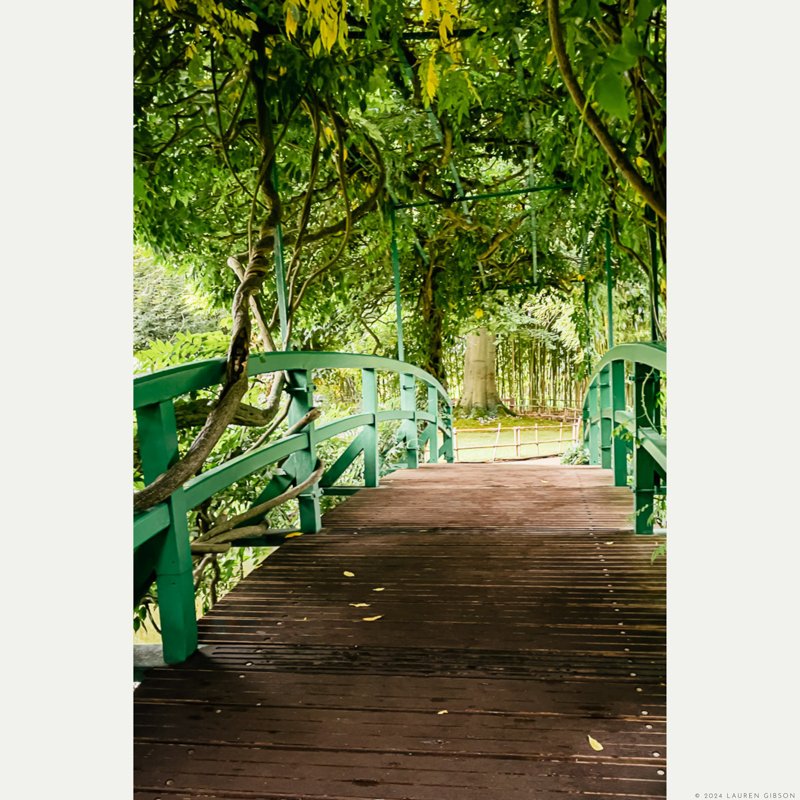
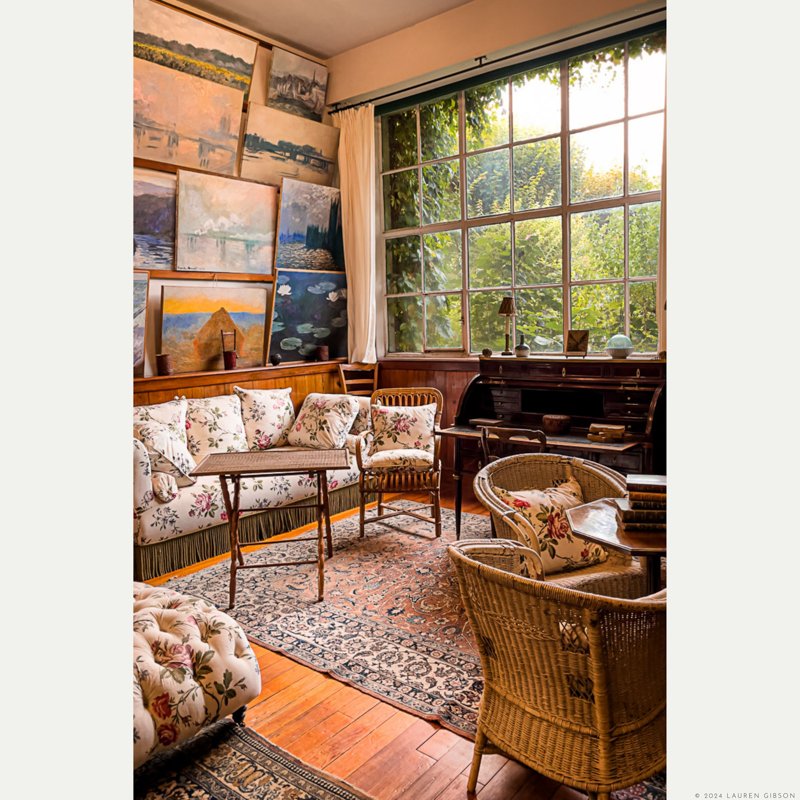
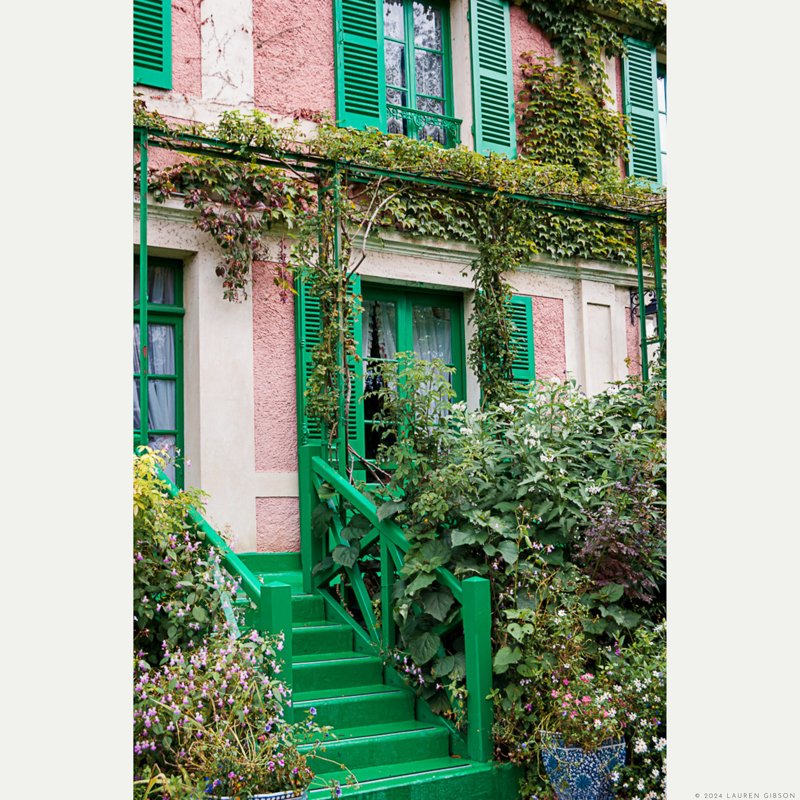
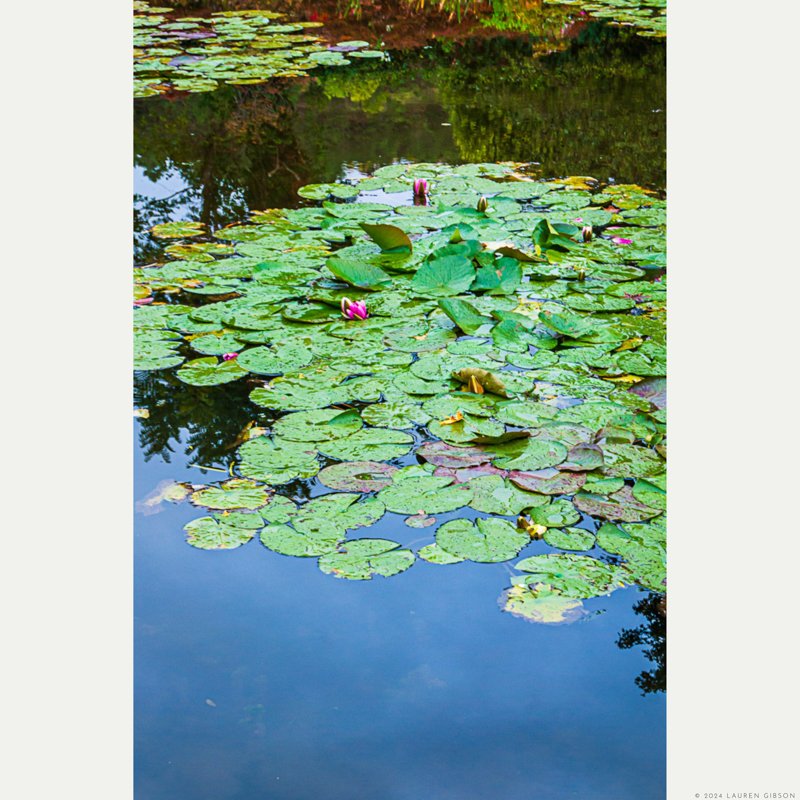

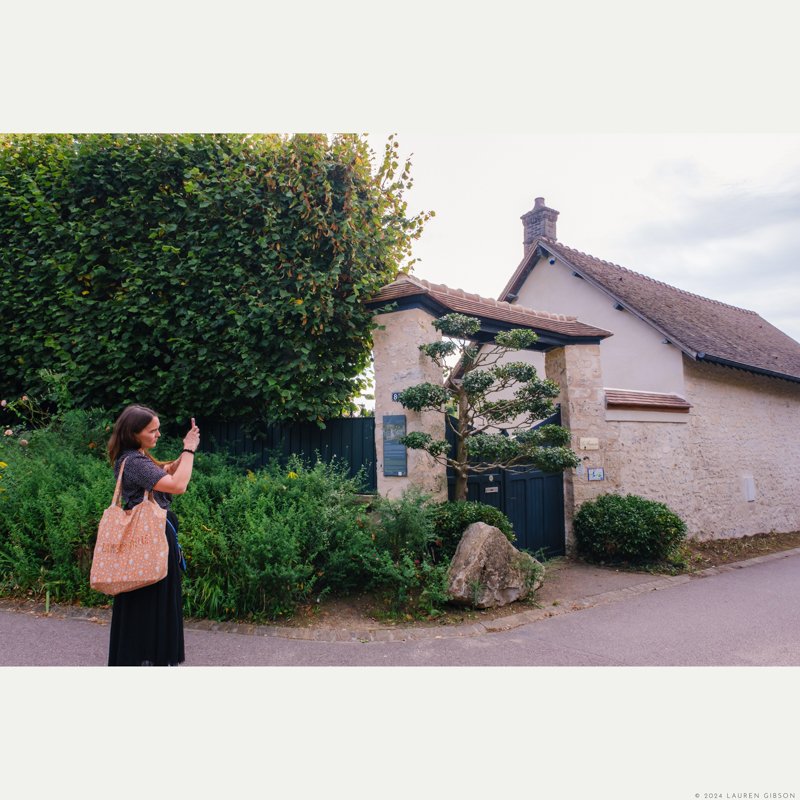

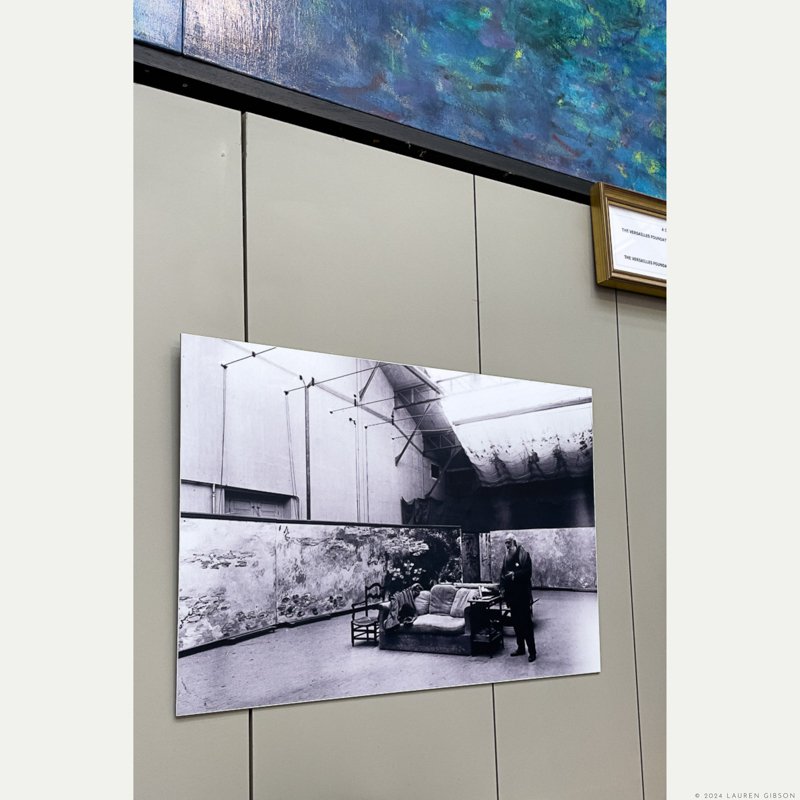
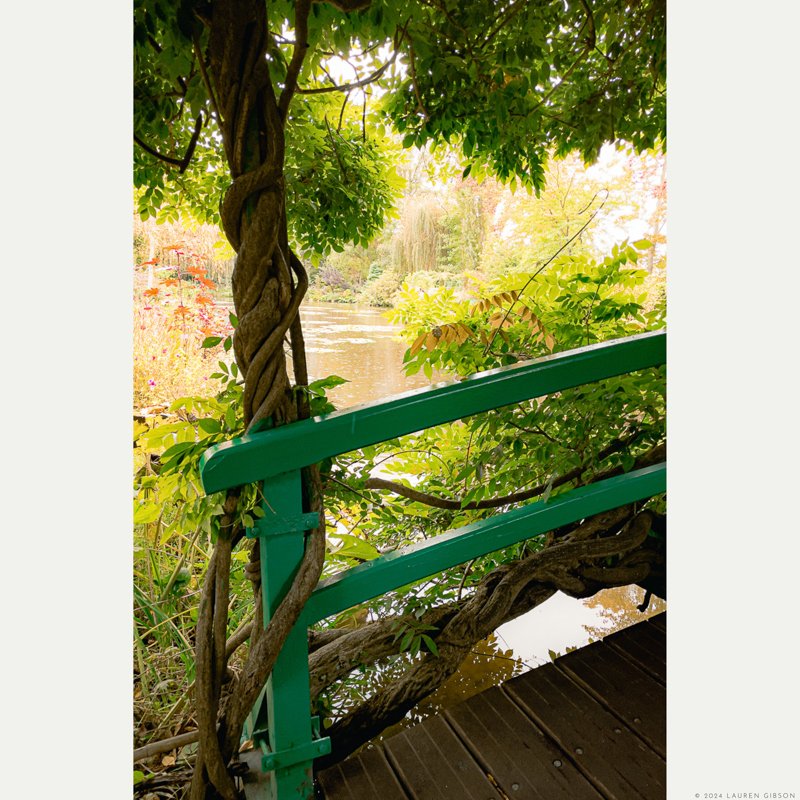
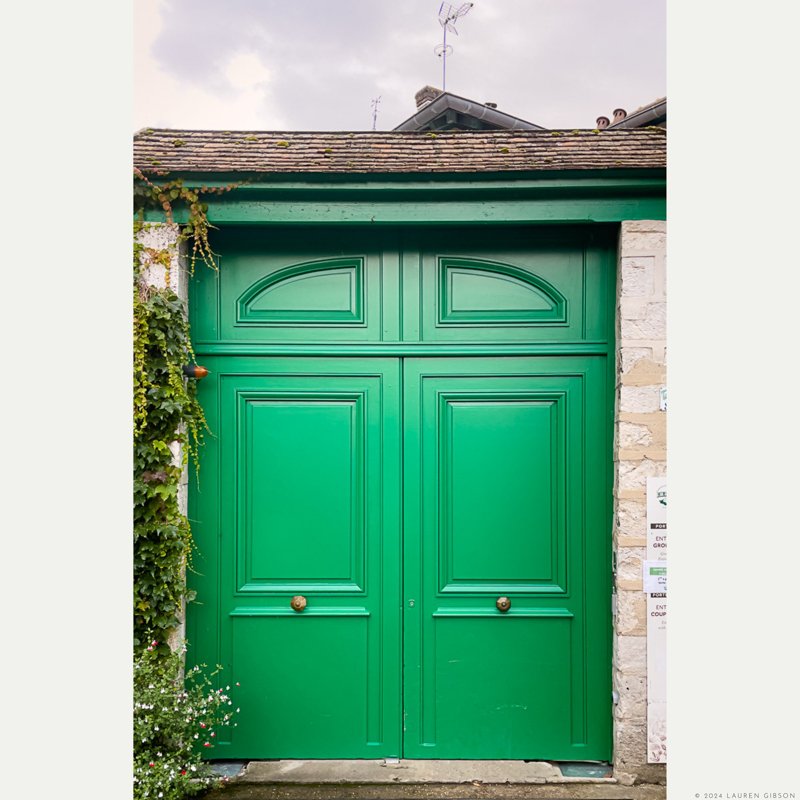
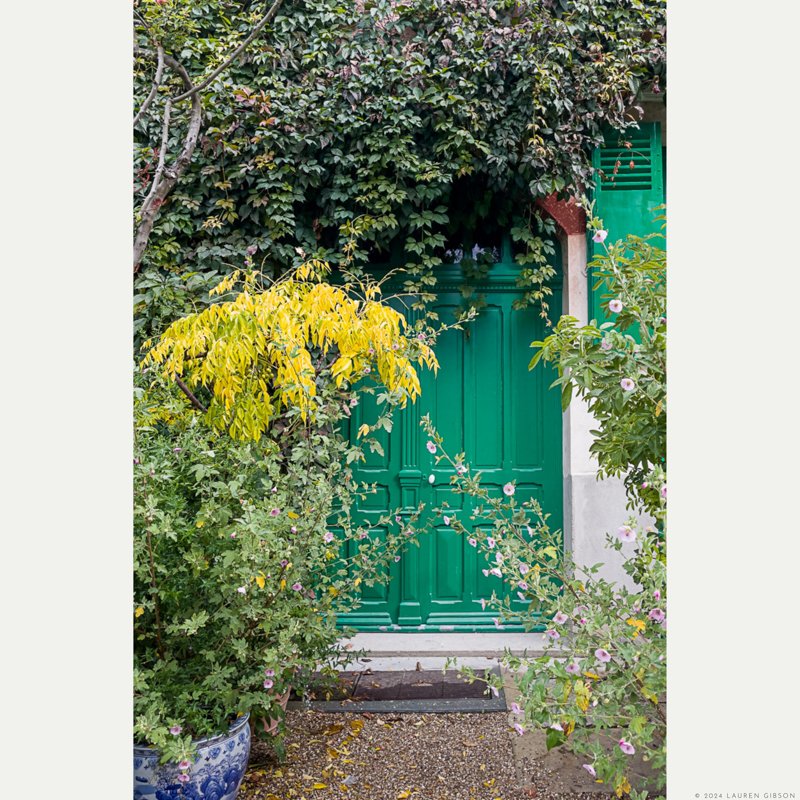
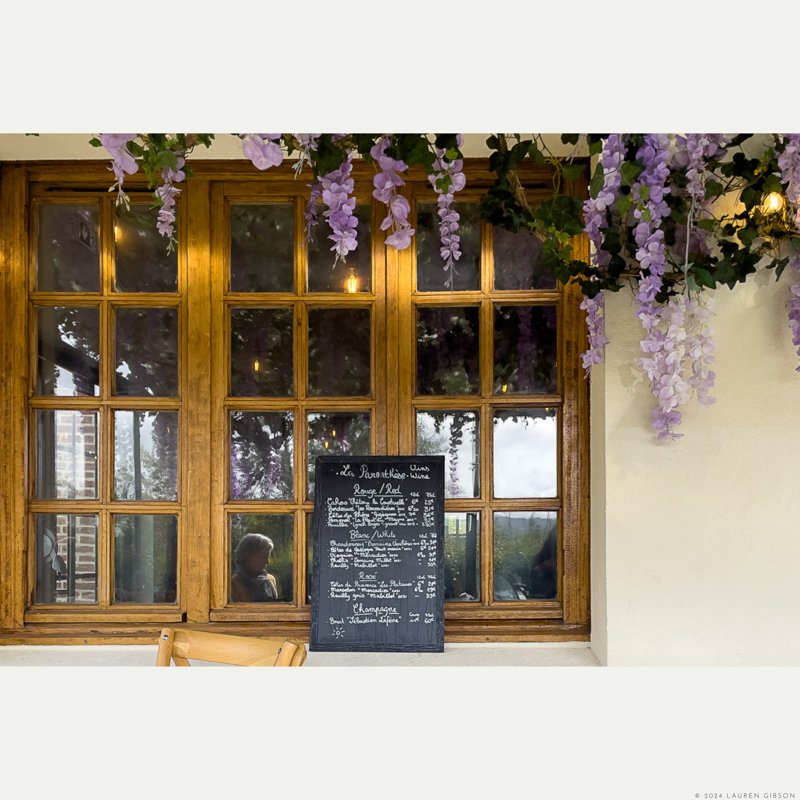
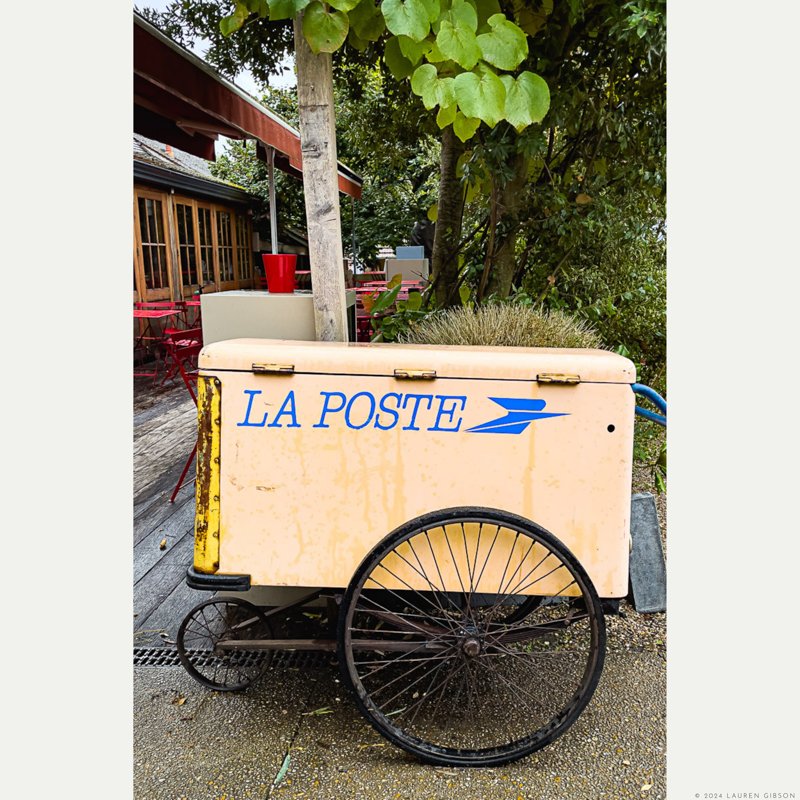
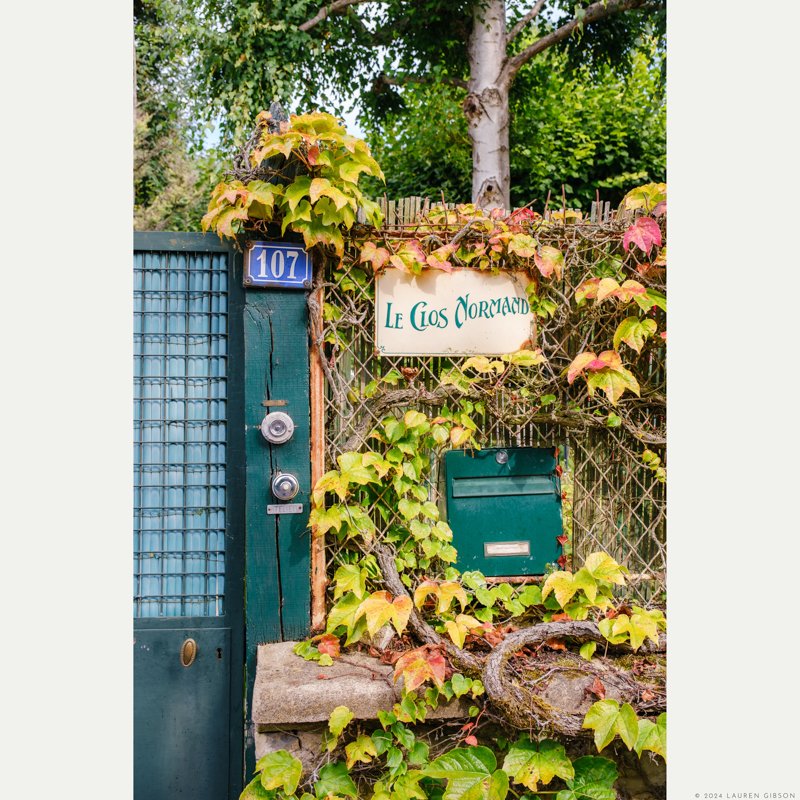
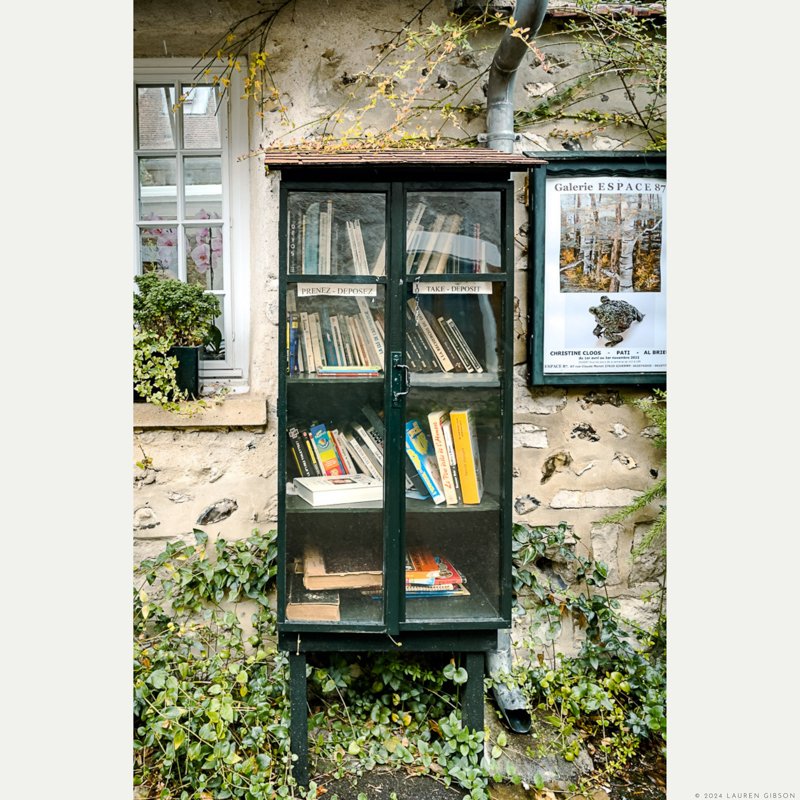
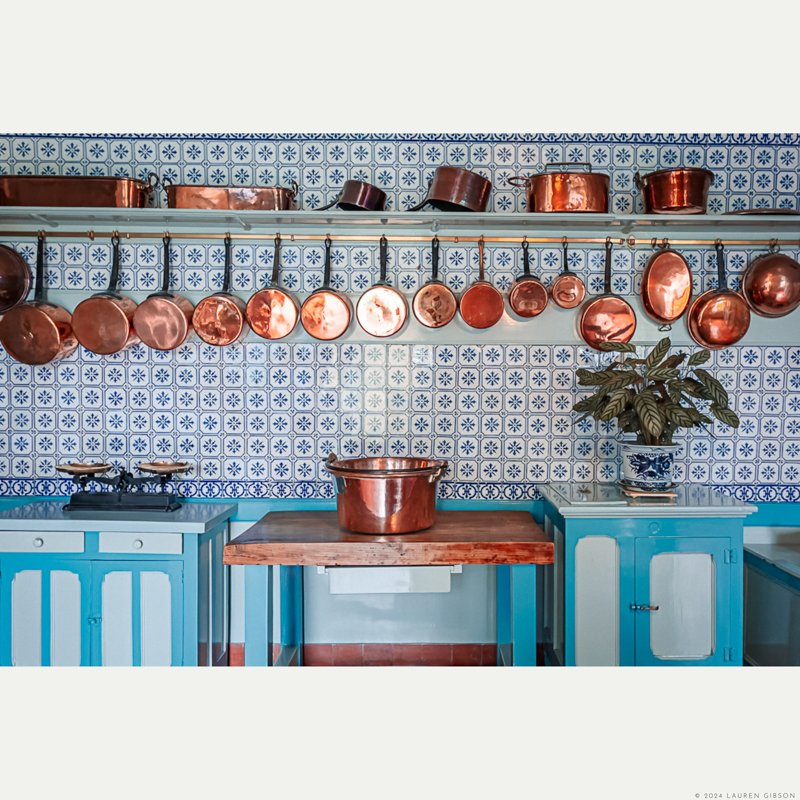
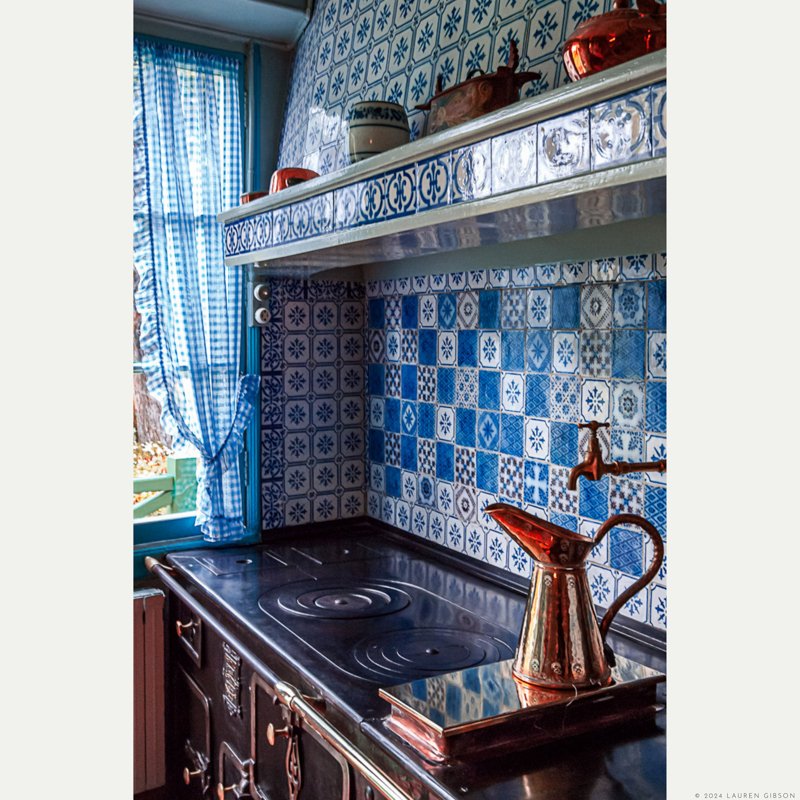
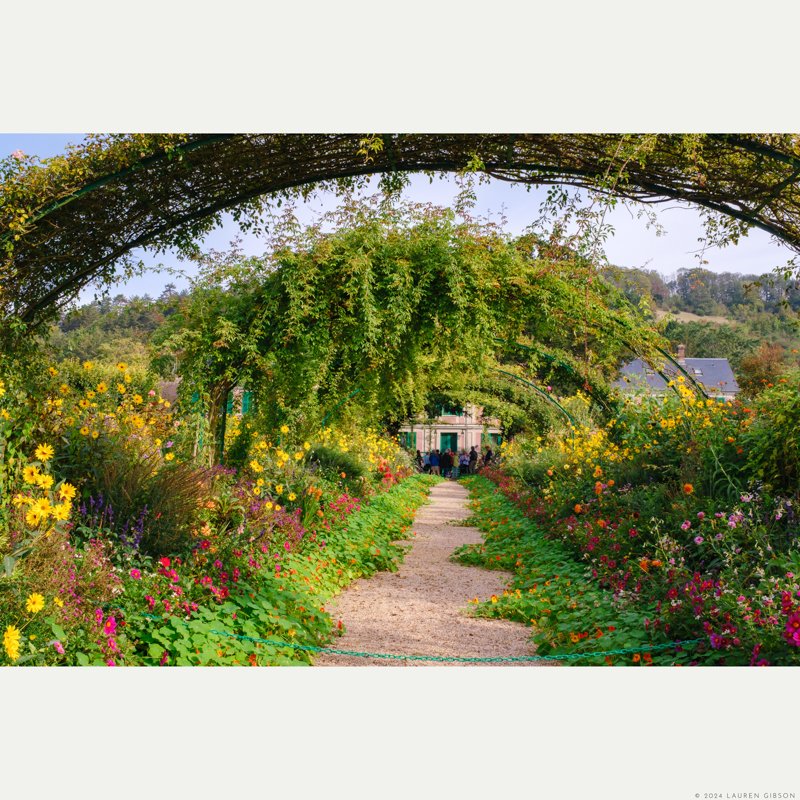
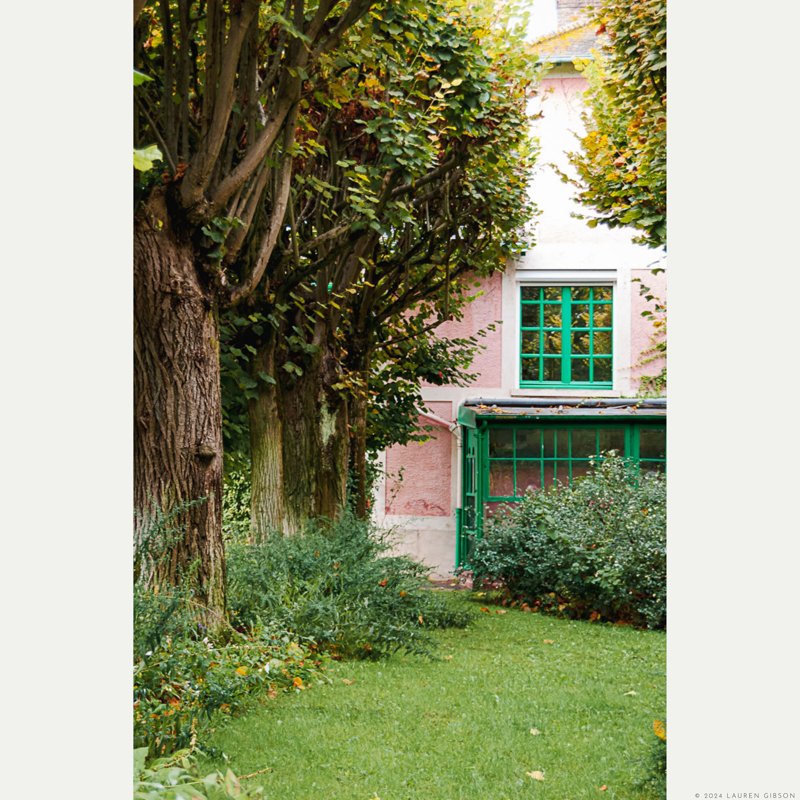
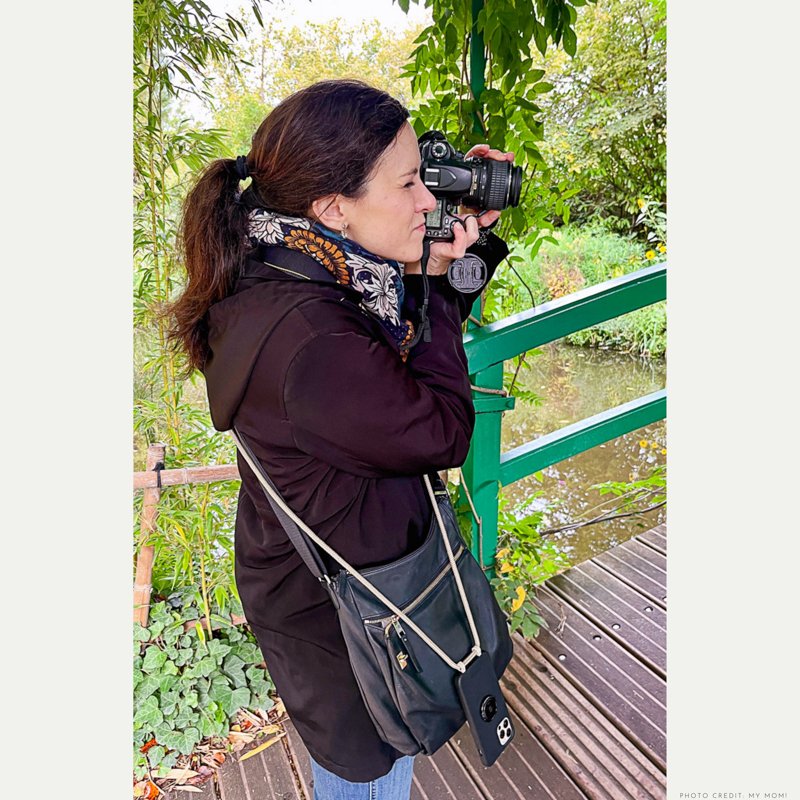
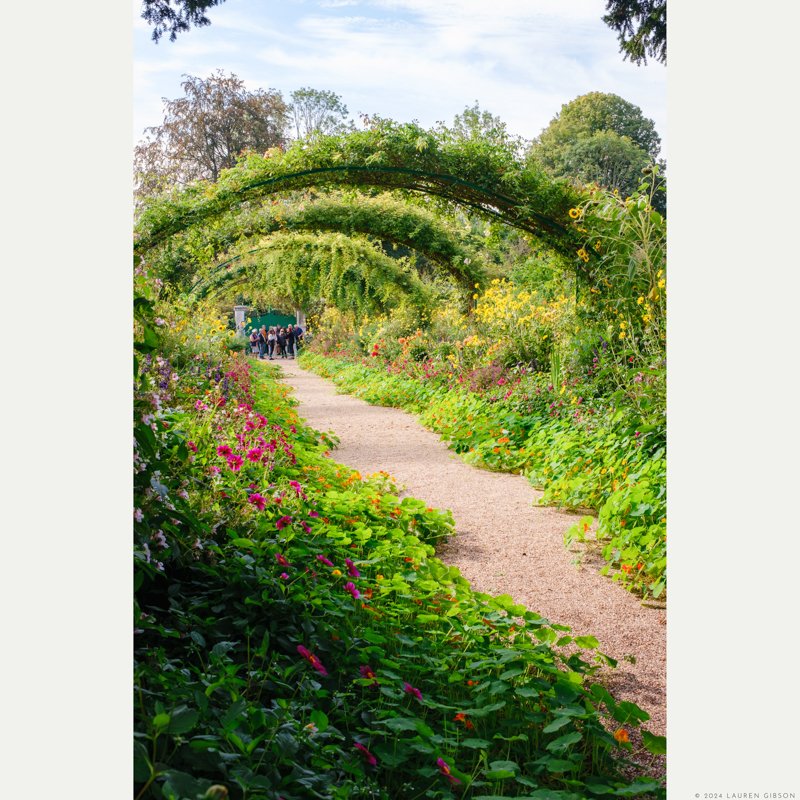
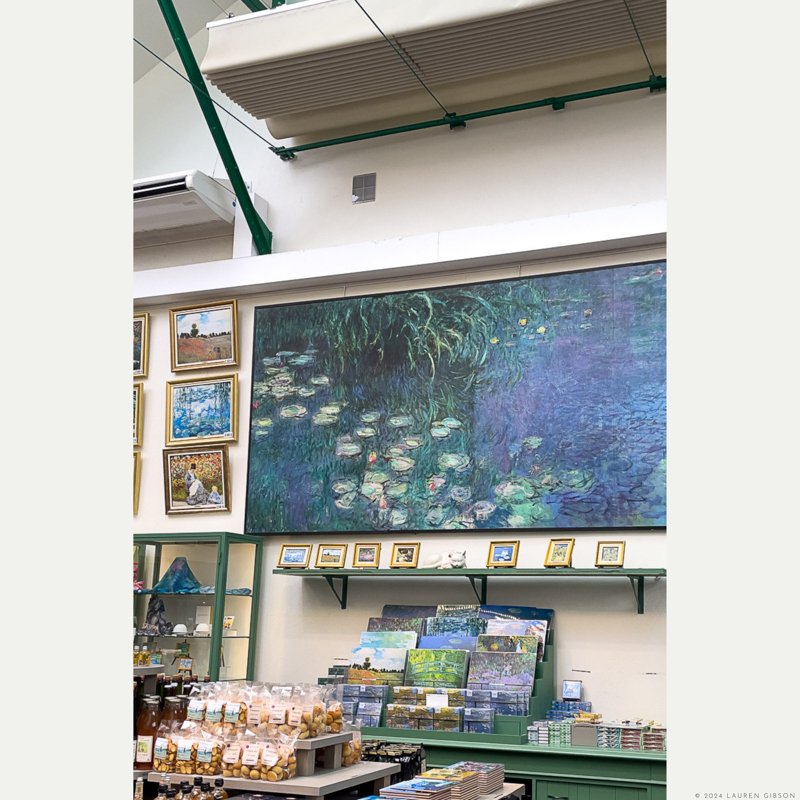
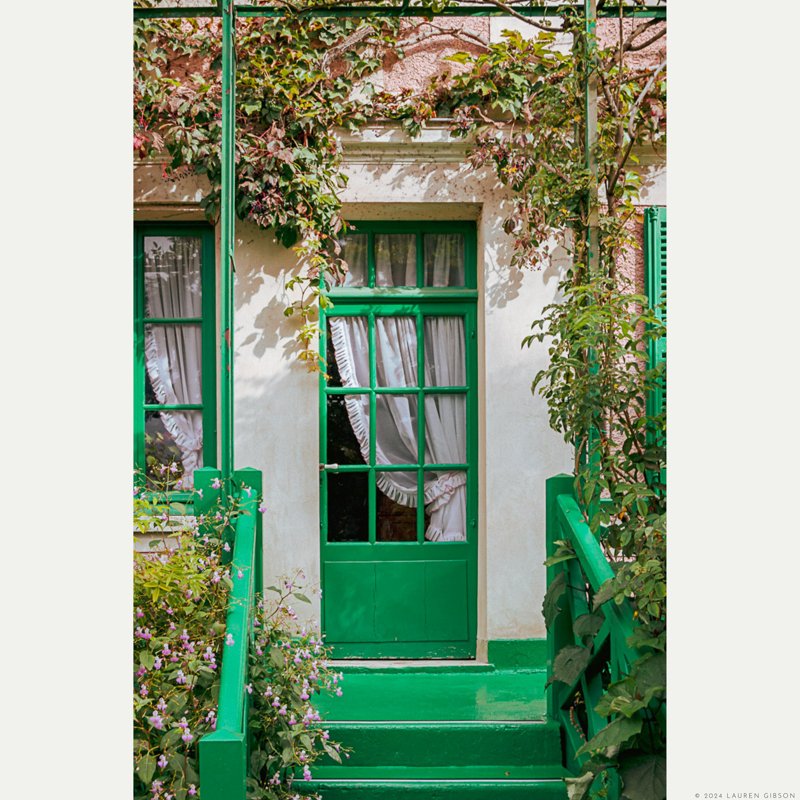
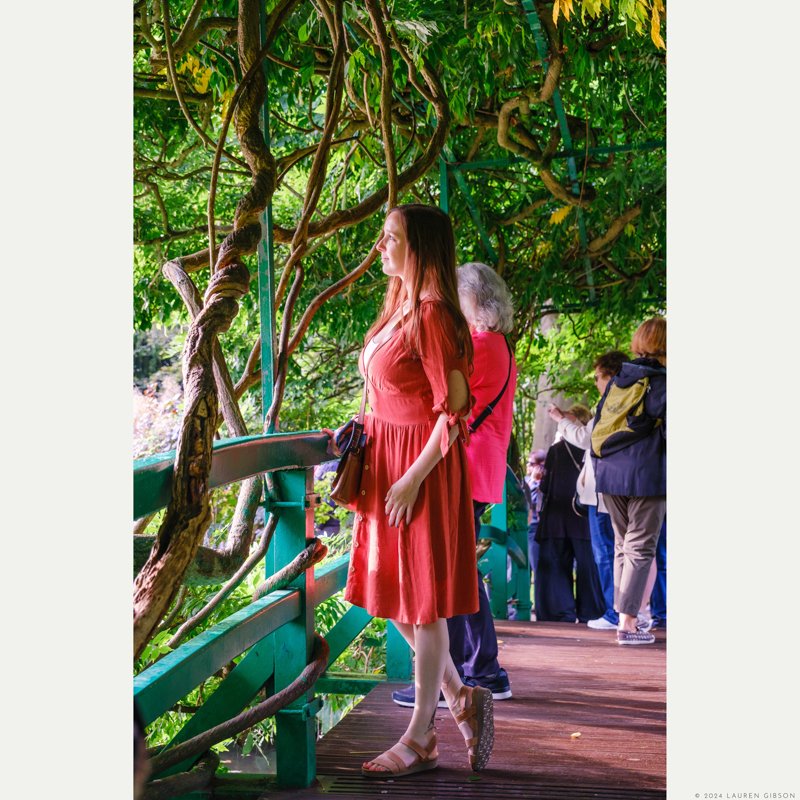

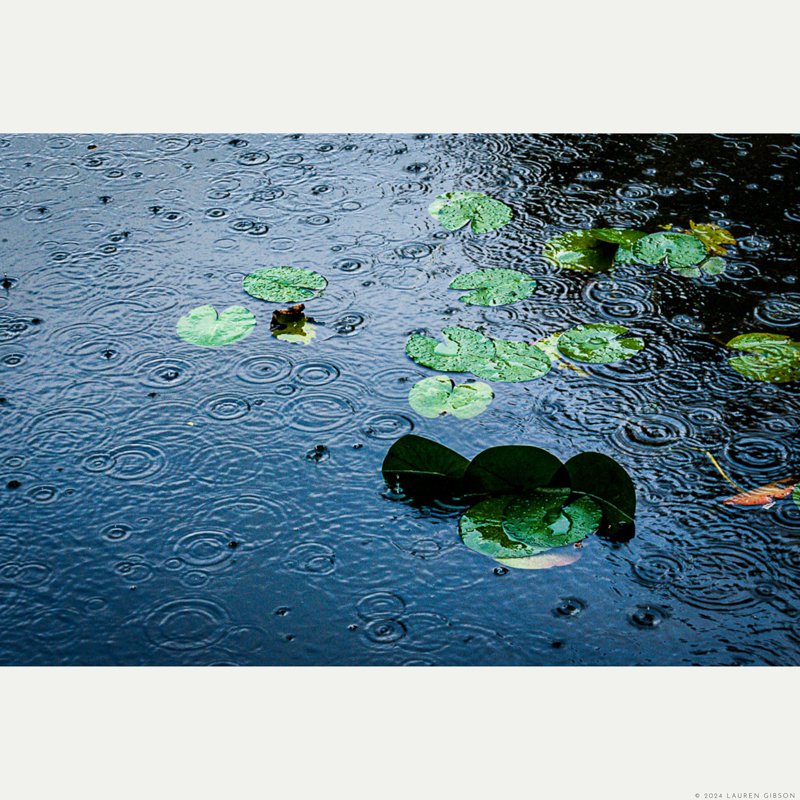
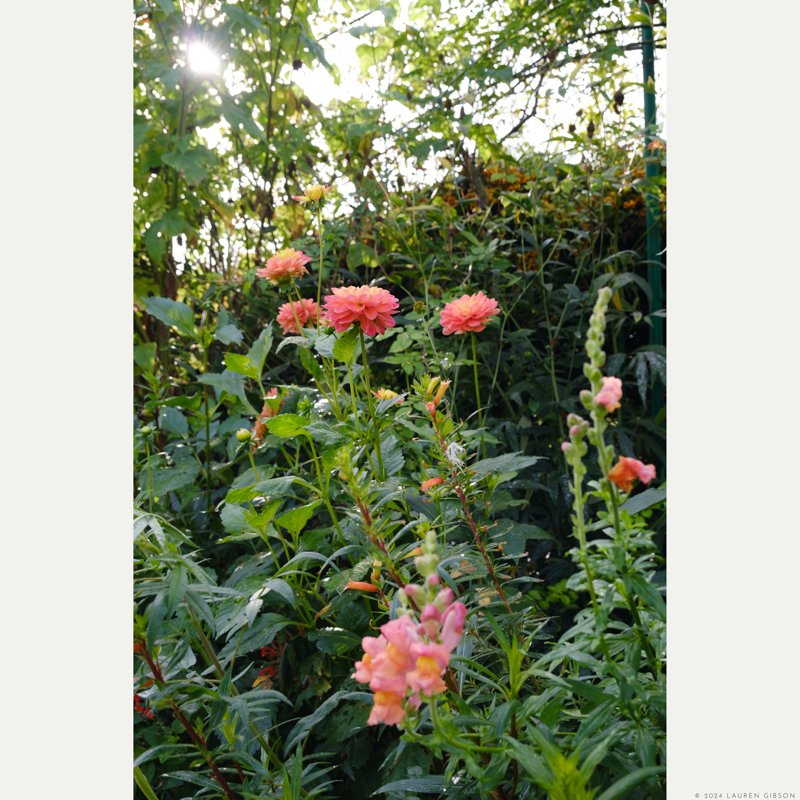
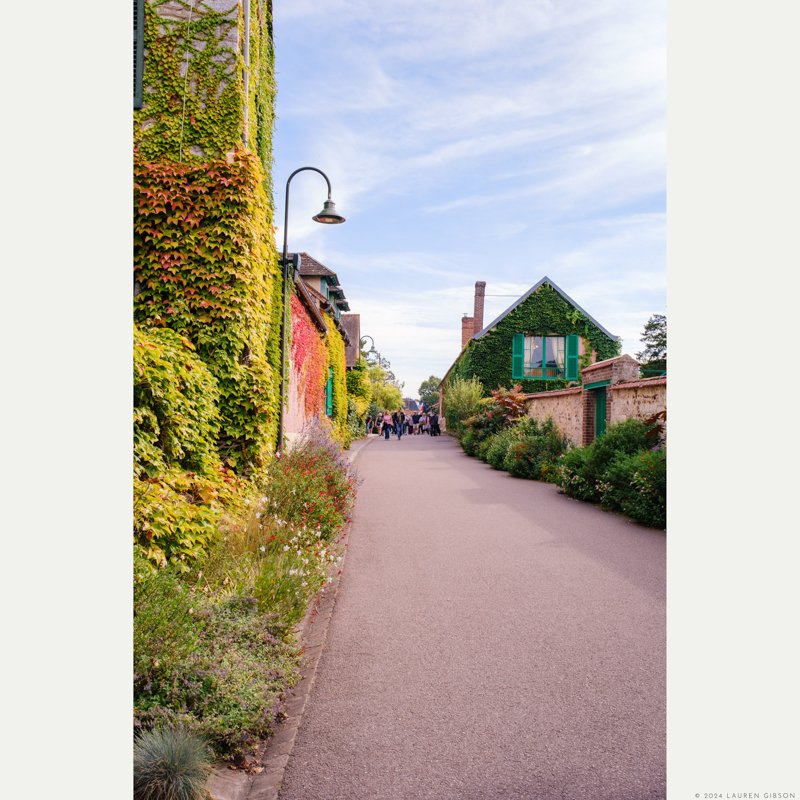
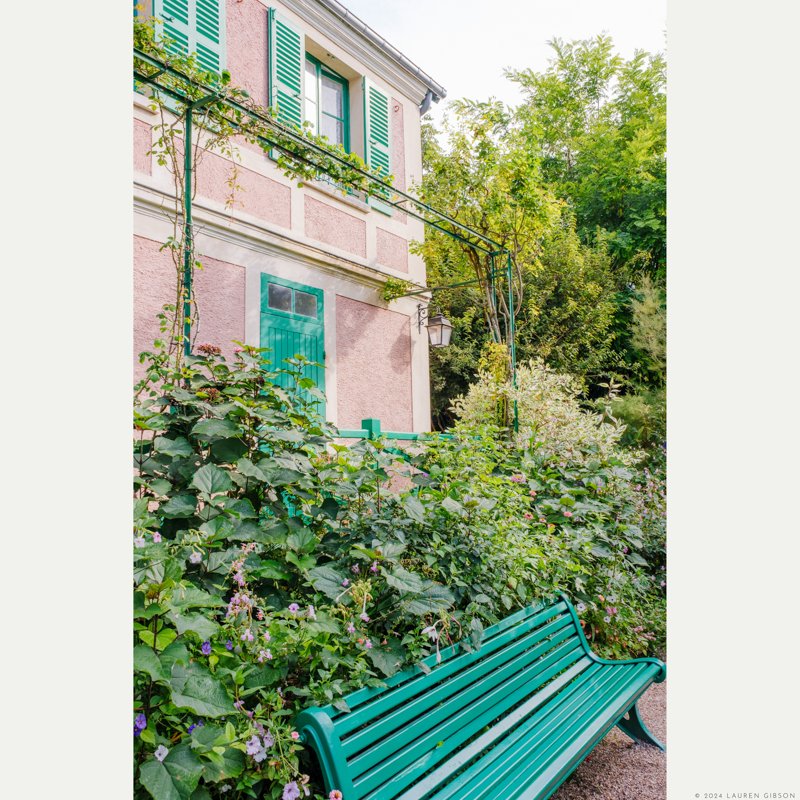
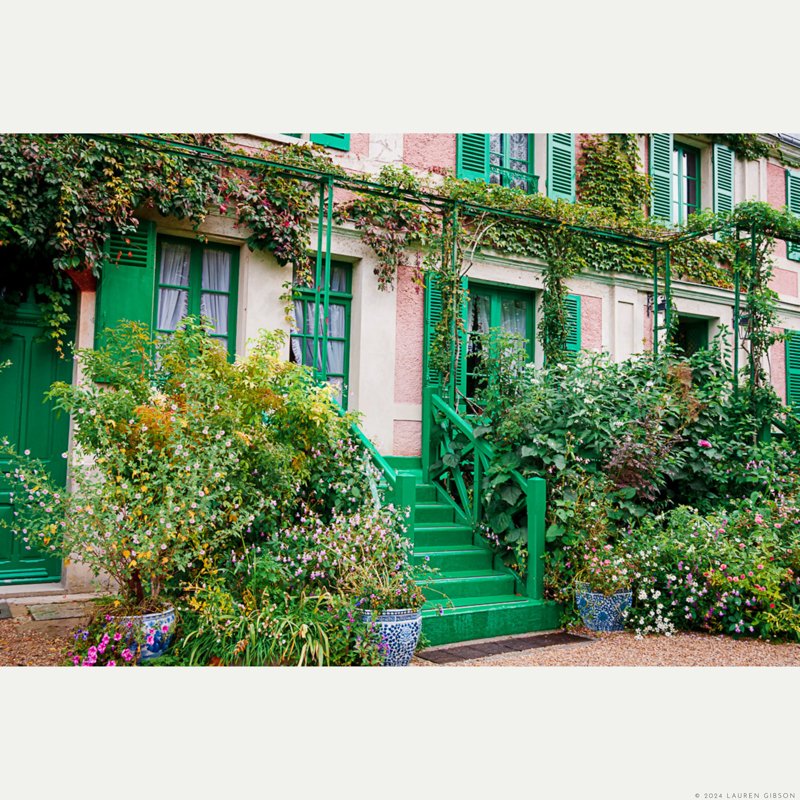
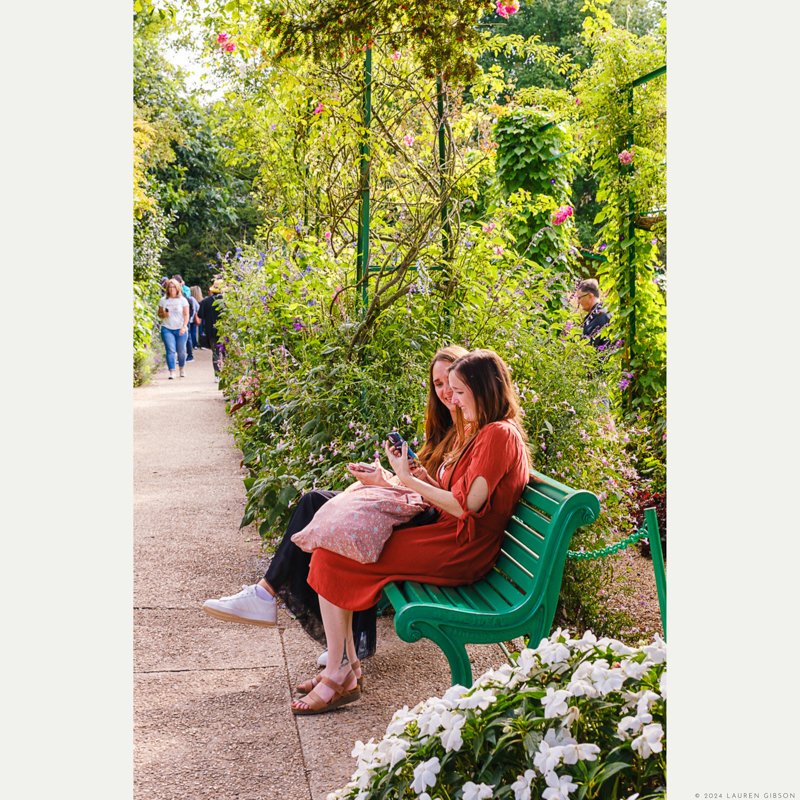
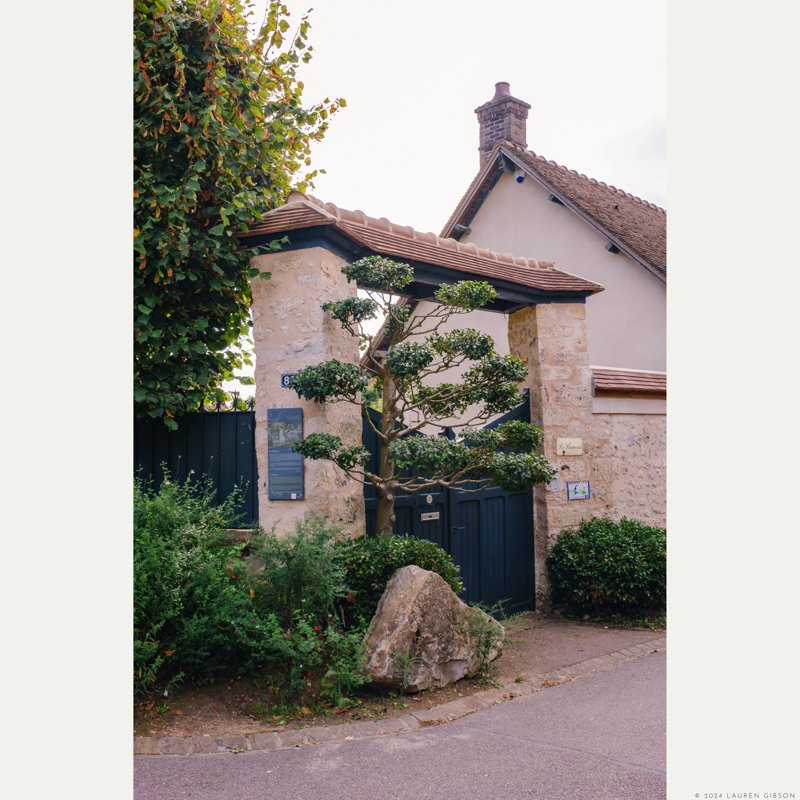
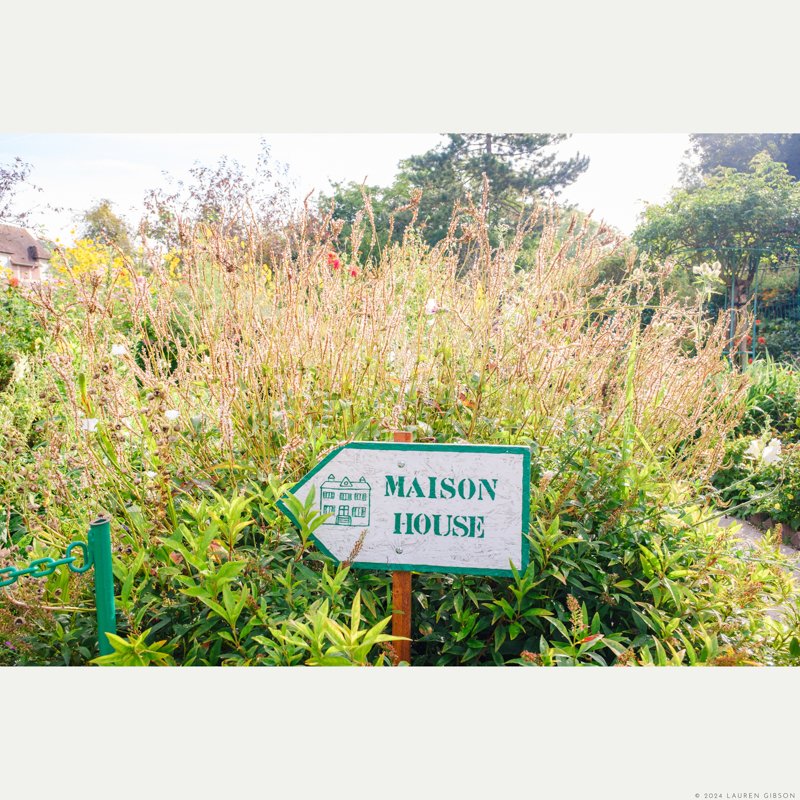
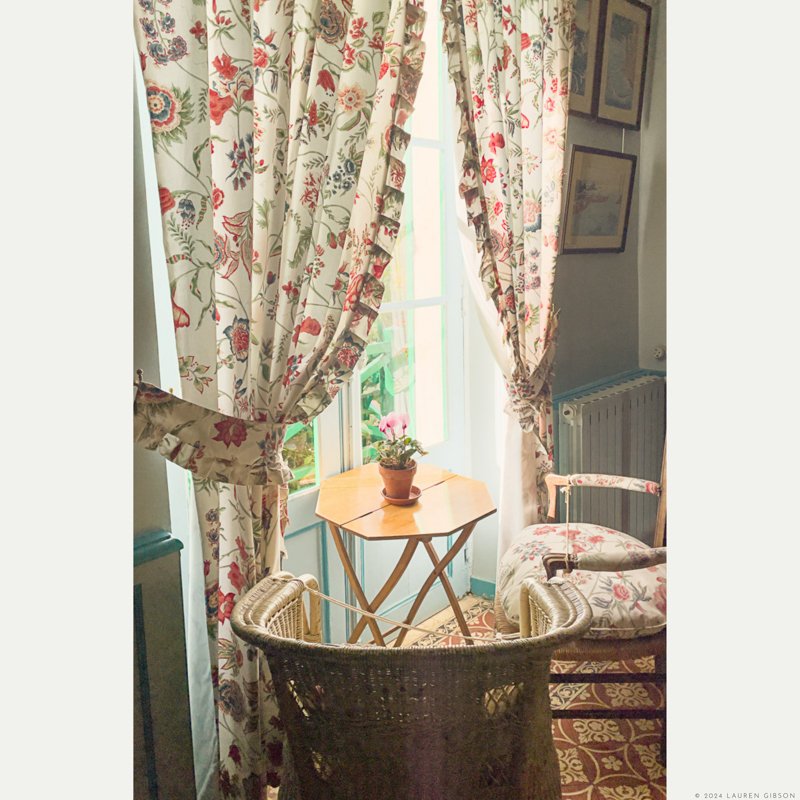
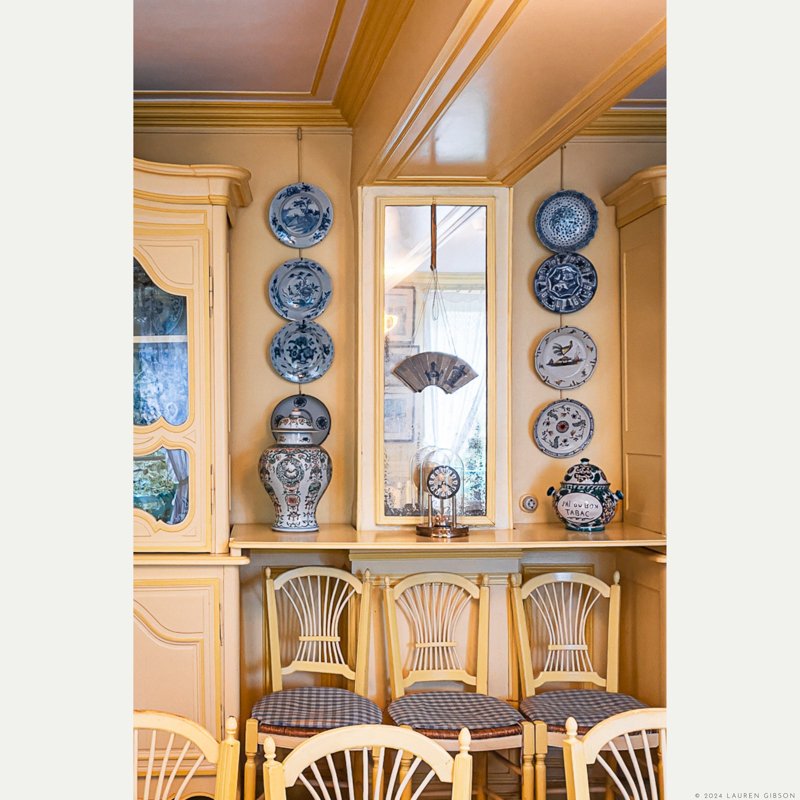



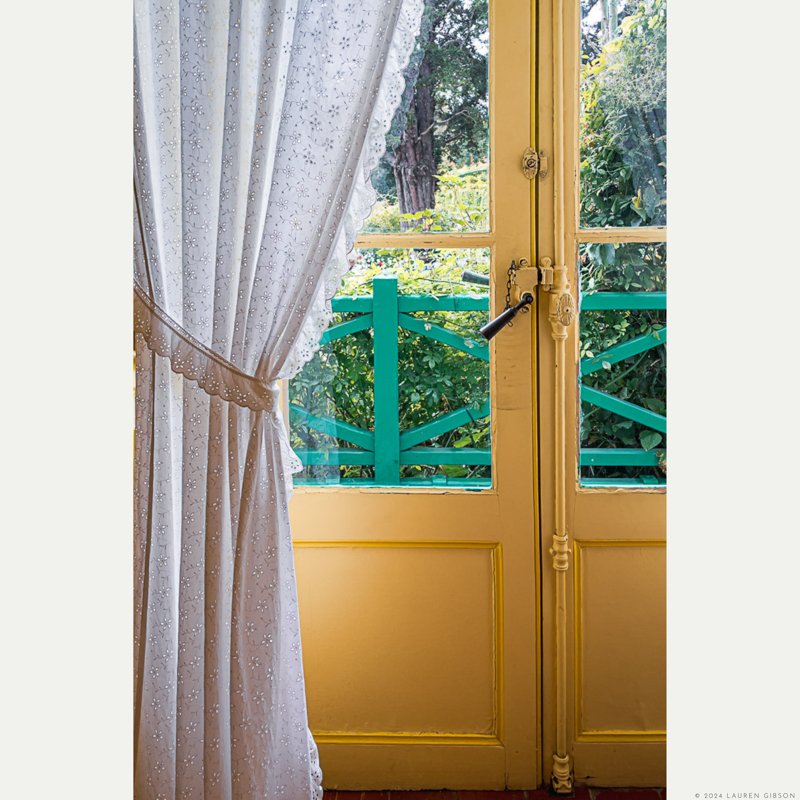
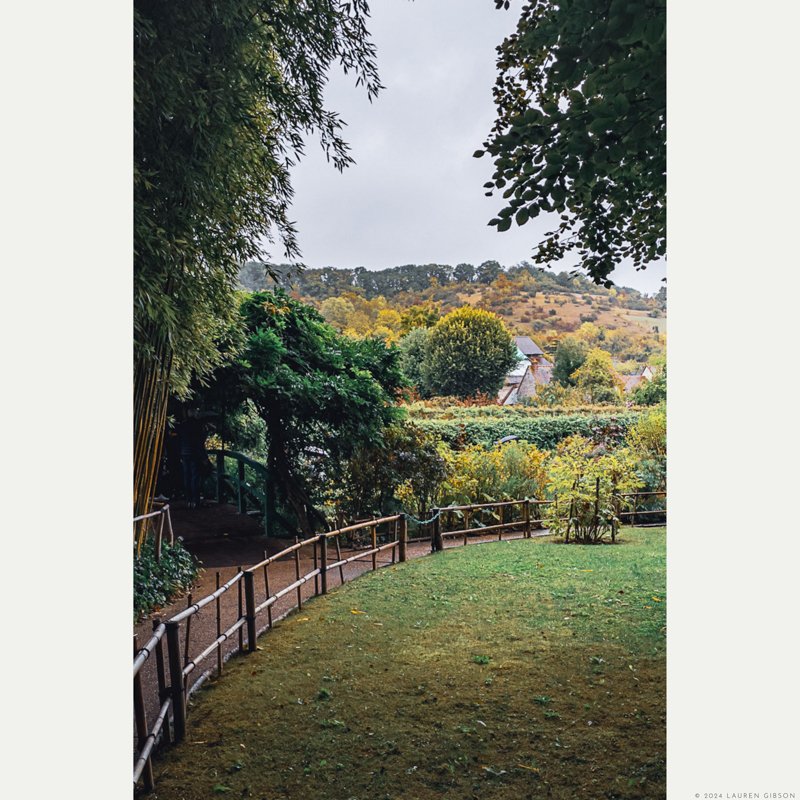
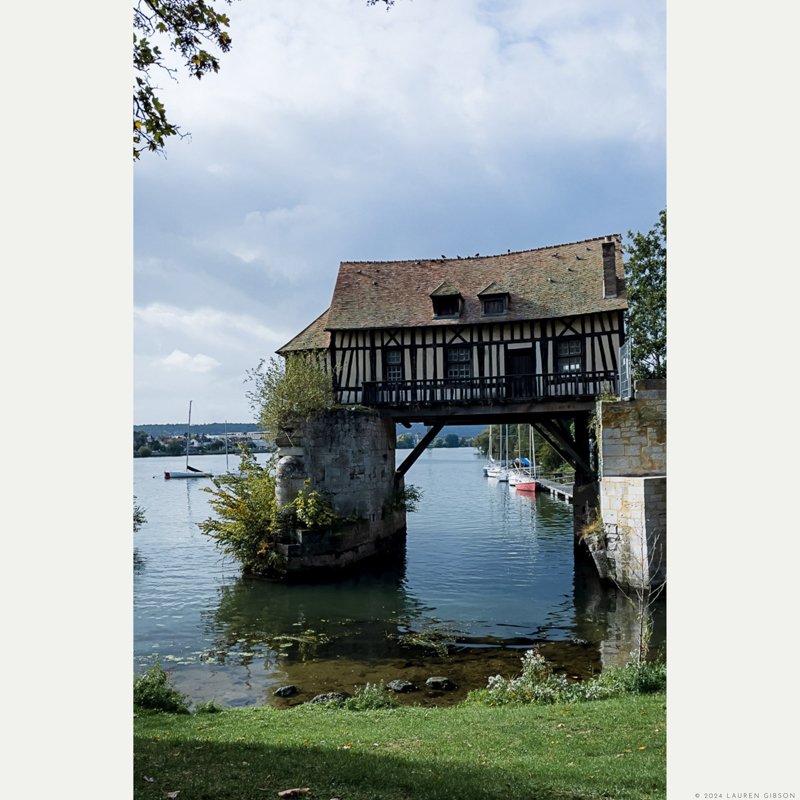
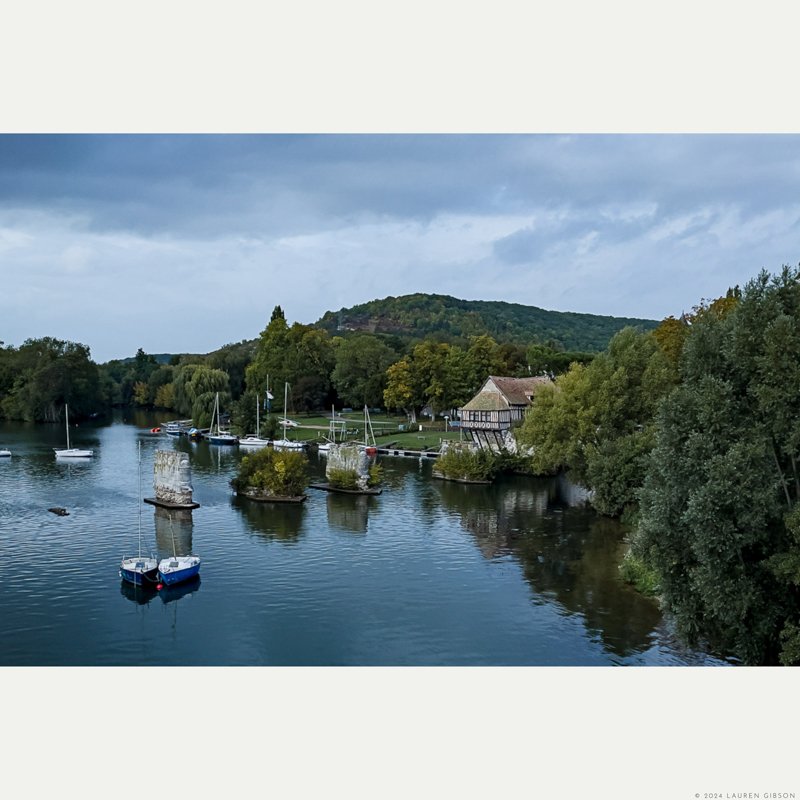






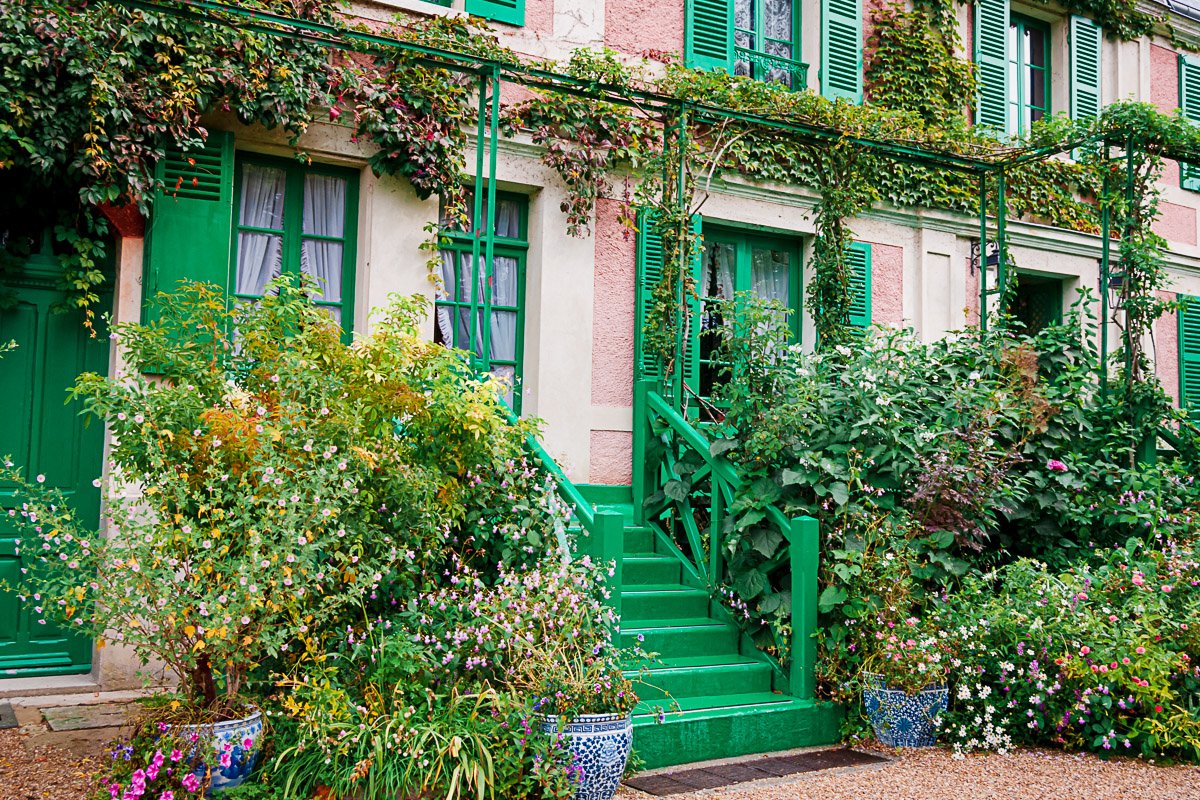
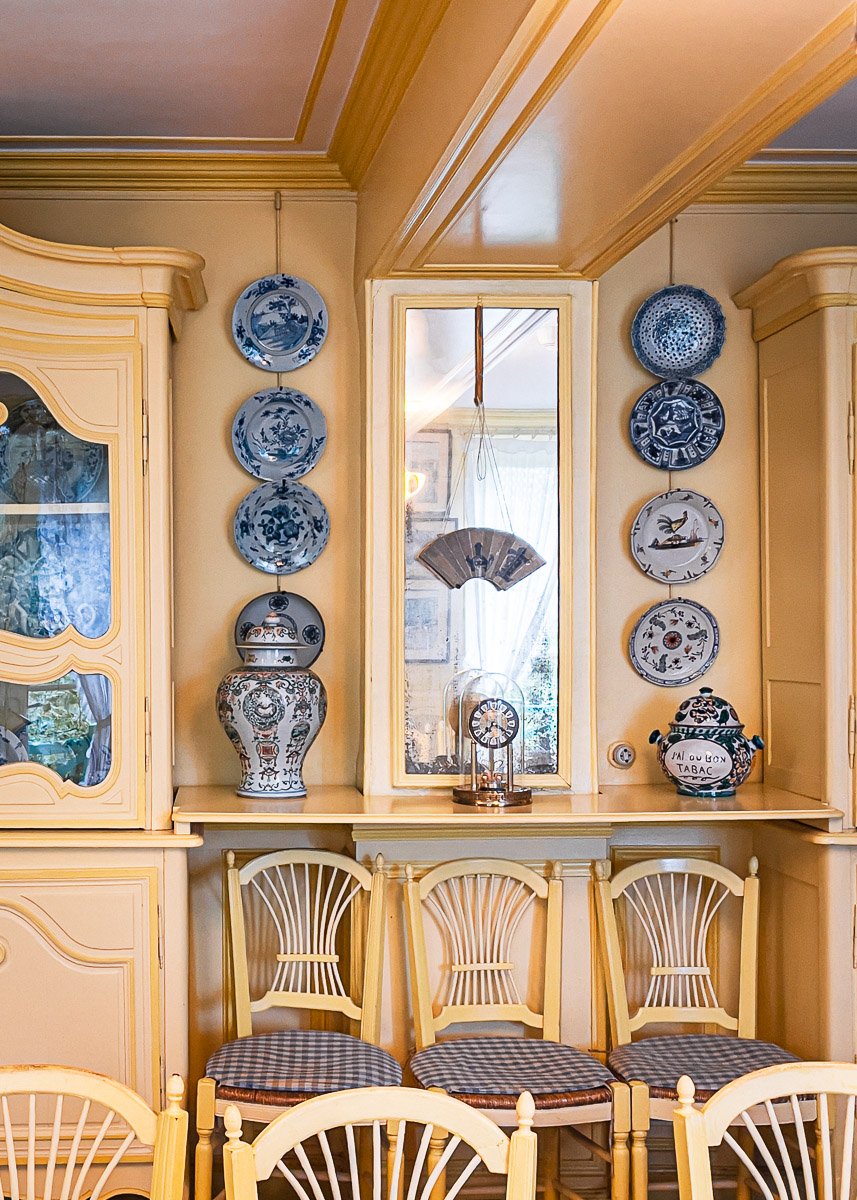
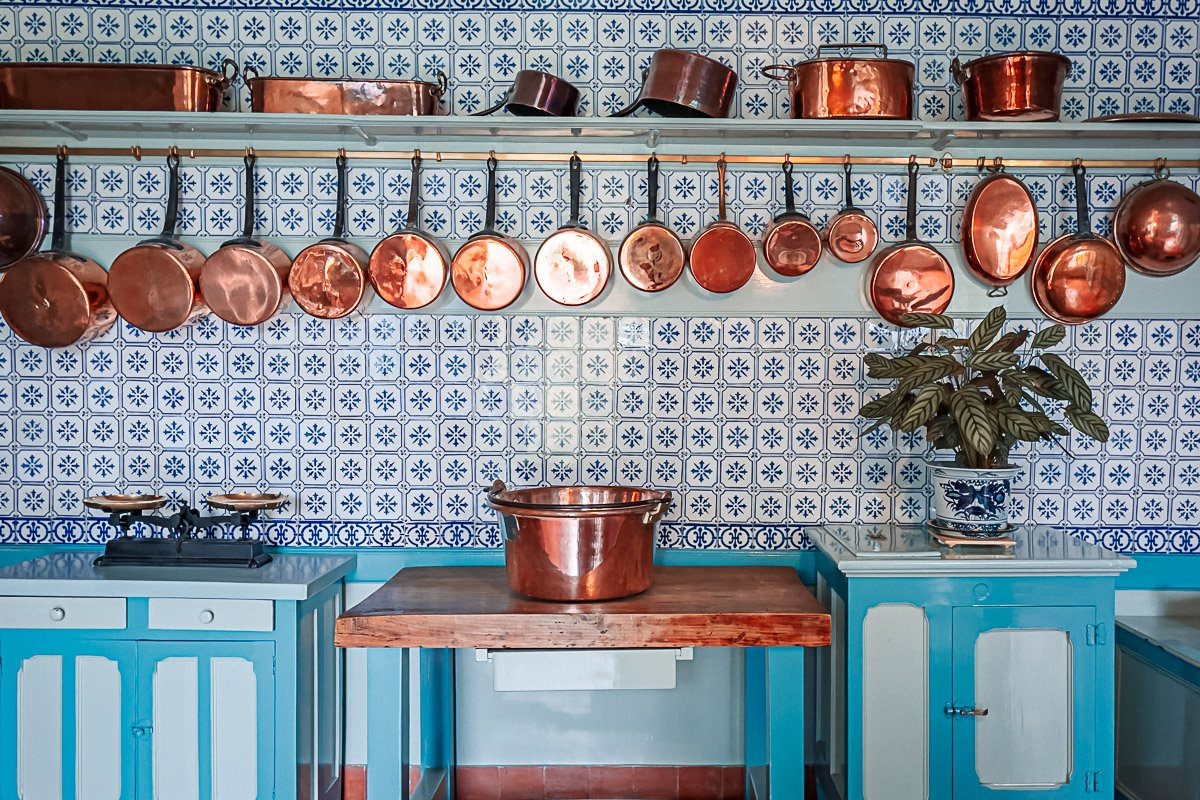
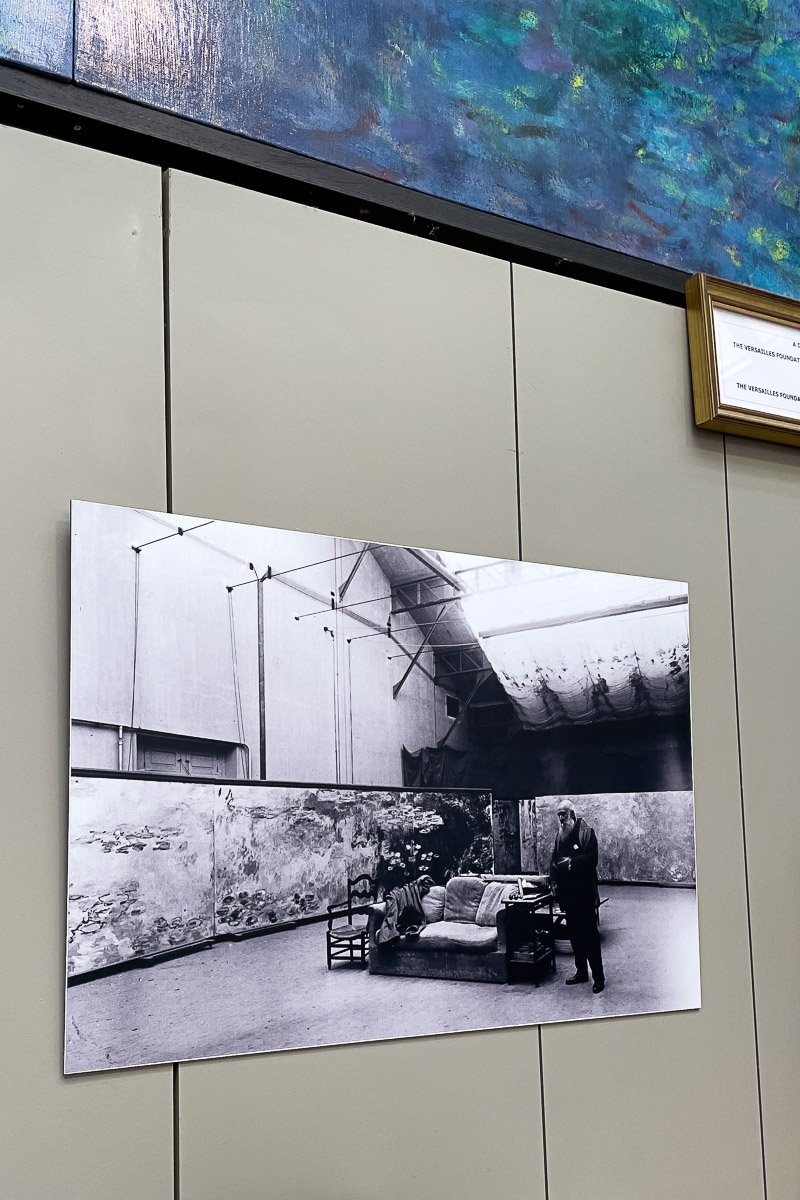
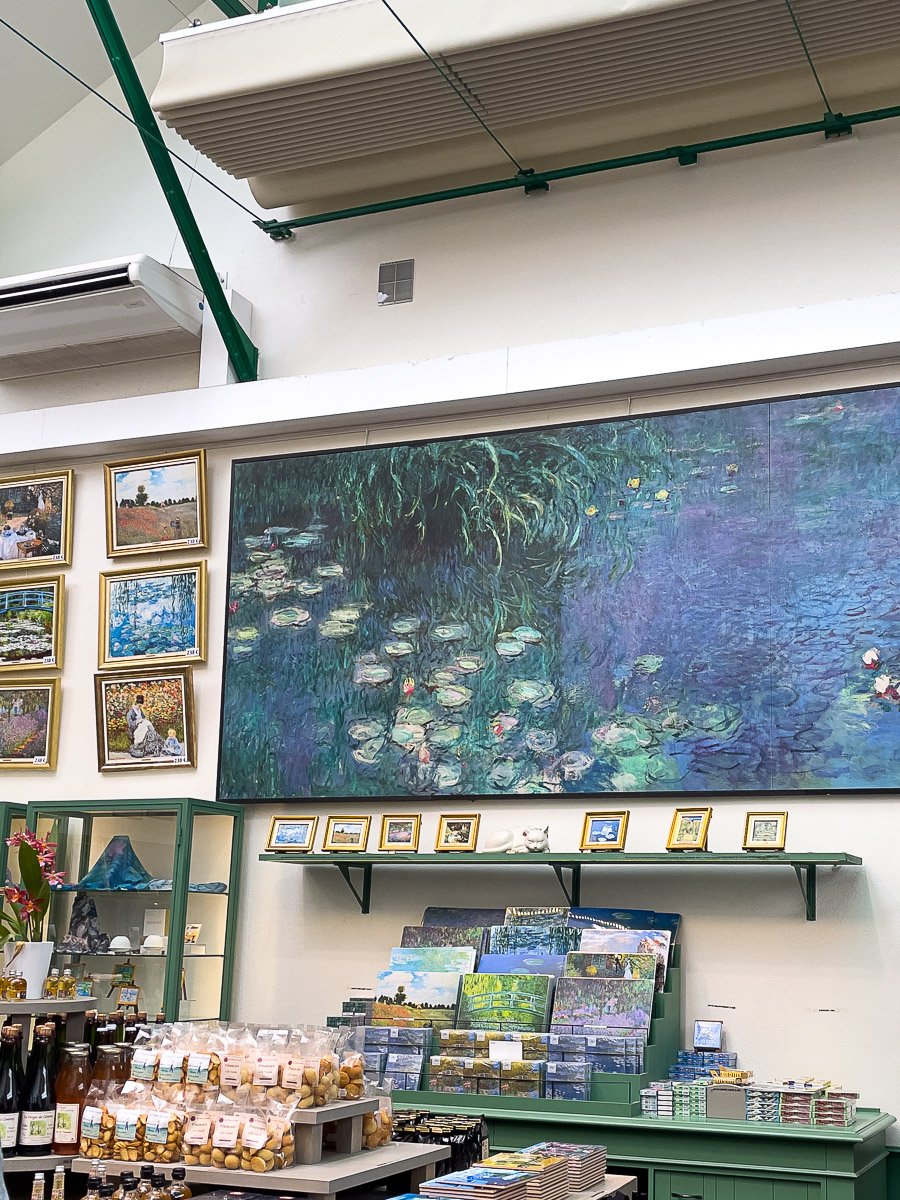





A Paris Day Trip Idea: Visiting Reims in the Champagne Region.
Reims is the largest city in the Champagne wine region, and is the home to multiple Champagne houses and UNESCO world heritage sites, despite serious devastation in both world wars (especially WWI). Reims is also home to the Gothic stunner, the Cathédrale Notre Dame de Reims, a soaring cathedral dating back to the 1200s that served as the site of France's royal coronations for hundreds of years.
We visited two champagne houses as part of our day trip from Paris - learn more about my visit and consider adding a day trip to Reims to your next Paris trip itinerary.